Teresa Marraco started taking piano lessons when she was five years old. The artist who now records as Antinoë couldn't reach the pedals yet, but she quickly discovered that she loved to play. Her teacher, Clara, taught her not just how to read sheet music but how to be creative, to envision and ultimately realize ideas beyond what was written in the score. "She would ask, 'What does this song tell you? Can you sing something about it? Can you draw something about it?' It triggered my imagination," Marraco says. She continued to study with Clara until she was 17.
When she was 15, Marraco met some older boys in her town in Spain who knew she was a piano player and asked her to join their band. By that point, she'd begun to listen to some rock music and nü metal, but nothing heavier than Slipknot. Now she was in a band that covered Dimmu Borgir — a black metal band, she'd later learn. A door opened, and Marraco walked through it. Soon, she was absorbing music by a litany of progressive metal bands; her early favorites included Opeth and Meshuggah. It wasn't until she was in her 20s that black metal really started to make sense. An ex-boyfriend introduced her to classic acts like Immortal and contemporary greats like Spectral Lore, but it took a personal tragedy for the music to fully click into place.
"I was interested, and I respected it, when I was like 21," Marraco says. "But I fully understood it later, at 25, 26, [after] my father passed away. This triggered something in me. I wanted to get back [to black metal] and try to understand it better and feel it better. I don't know if this happens to other people, that if you go through some bad situation in your life that changes you, maybe you understand black metal better. That's what happened to me, and I embraced it like if I was a teenager."
Marraco's two great musical loves – the piano and black metal – remained largely separate at first. Even when she was playing with her teenage band that covered Dimmu Borgir, she often struggled to follow the metal guitar riffs with her keyboard. She tried to learn guitar, but she found that she had trouble expressing herself with it, whereas the piano came so naturally. Black metal and piano were clearly on a crash course, but she couldn't quite figure out how to make the pieces fit.
In time, a way forward revealed itself. Perhaps remembering Clara's lessons in thinking beyond what was on the page, Marraco learned to pick out key riffs in the black metal songs she loved, bits of melody that she could use to build new piano versions. Early in the pandemic, she started posting short videos of herself on Instagram, playing black metal songs on her home piano: Immortal's "At The Heart Of Winter," Emperor's "The Acclamation Of Bonds," Ulver's "Ulvsblakk." She uploaded them under the name Antinoë.
Antinoë was originally conceived of as a vessel for a concept album based on a fantasy story that Marraco wrote, but that project has yet to see the light of day. Instead, the first album released under the Antinoë name was 2023's Whispers From The Dark Past, a nine-track collection of black metal classics reimagined for piano and voice. Marraco's past and present collide on this album. She agilely works her way through Mayhem, Darkthrone, and Enslaved songs, songs that their makers never could have imagined being arranged for solo piano, and you can hear her bifurcated musical soul becoming one. There's even a Dimmu Borgir cover.
"I knew that my followers would like it, because they were the ones asking for this album to become reality," Marraco says. "And then Oytun Bektas, my friend from Australia who runs the label Orko Productions, he came up with the idea that I should complete these Instagram, one-minute, short covers, [because] sometimes it's not enough. So I released Whispers, and we reached an audience, and I'm very pleased with how it came out. Obviously, I understand that it's something that maybe some people don't like or understand, but at the same time, I think it was quite well understood and welcomed."
Among the people who understood Whispers From The Dark Past were the staff of Norwegian prog label Karisma Records and its metal subsidiary, Dark Essence Records. They quickly signed Antinoë to Dark Essence to release Marraco's first album of original music, The Fold. The fact that Antinoë ended up on Dark Essence rather than Karisma gets at the unusual nature of the project. It would be a stretch to say that these songs written for piano and voice are metal, and yet the dark, dramatic atmosphere Marraco conjures on The Fold makes it a better fit alongside Dark Essence mainstays Helheim and Aeternus (whom she covers on Whispers) than, say, Karisma's solo keyboard maestro Lars Fredrik Frøislie.
"Some of the songs are very metal in my own way, like 'Threshold,'" Marraco notes. "When I play 'Threshold' at home, I make a lot of noise, and I sometimes used to growl it instead of singing it, just to explore what it was like to do this combination of growling while doing piano. That song has a very metal intention. I learned a lot from Whispers, and I sort of figured out my own sound and the [MIDI] libraries that I loved. I wanted to keep using them. So there is still the same vibe in a way, but I also wanted to introduce other influences, other elements that are from different worlds. There is a pop essence, and there is a prog essence as well. A folk essence, a little bit, too. It's like a compilation of many of my influences, and all my father's influences as well. He introduced me to Radiohead and Genesis, and I wanted to add a little bit of that."
Much of The Fold deals with grief. There's a very real possibility that Antinoë would not exist had Marraco's father not died and sent her down a black metal rabbit hole. On The Fold, she considers the various ways loss and grief have affected her. She's quick to note that the album isn't explicitly a tribute to her late father, but rather a personal exploration of the emotions that his death precipitated. To paraphrase metal's most famous song for piano and voice, she's been going through changes.
"I'm doing this to consider and to reflect on how this has affected me and changed me, and how it has gotten me closer to darkness, and how I reacted to it, now that I can see it in perspective," Marraco explains. "I did many things wrong, and I pushed a lot of people away. But at the same time, I got closer to things I loved. The album speaks about all of this."
"I created this album with the intention of getting rid of my grief," she goes on. "But when I was in the process of composing, I realized that this would not happen. Grief is not linear. In theory, you have this negation, and then you have the anger, and then you have the negotiation, the depression, the acceptance. But my personal experience is that I was changing all the time, and when I felt that I had overcome a stage, it would come back at some point. So I think that this [album] has given me tools to face things in the future."
"Si Te Dijo Ir," the only song on The Fold that Marraco sings in her native Spanish, is the album's emotional high-water mark. Sung in canon, the song dramatizes a farewell that stretches from night to the dawn of the next day. Sometimes Marraco imagines it as the end of one of her own romantic relationships; other times, it's a goodbye between her mother and her father on the night of his death. Even now, she has a hard time getting through it without crying.
"The lyrics there are very, very exposed, and I feel vulnerable," she says. "When I am singing in Spanish, I feel like I am understood. Every word I'm saying is very clear, because phonetically, Spanish is very clear and very rough. There is no chance that I can hide or be slippery. No, every single word is heard, so it's more honest, and I feel super exposed."
The Fold is full of such moments of raw emotional intimacy, but it's seldom quiet or minimalistic. Marraco considers it to be an album of symphonic music, not a piano record, even though the only instrument in the mix is her keyboard. Her instinct is to go big, doubling and tripling her voice and stacking up lush layers of MIDI sounds. If you're not looking at a track list, you might even think The Fold is an unbroken 42-minute song. (Indeed, Marraco delivered a single enormous file that kept crashing her computer. Javi Félez, the mixing and mastering engineer, kept it intact.) The compositions themselves are twisting, turning fantasias that never stay in the same place for long.
"It's the way I learned to play the piano," Marraco says. "If you look at a classical piece of music, it has so many changes in such a short time. It's coming up and down, and changing, and repeating. That affected my brain. I cannot stay calm."
There's more risk inherent in an album of original material than there was in Whispers From The Dark Past, which had a built-in audience of fans who were already familiar with the black metal songs Marraco was covering. At the same time, The Fold gives Antinoë the opportunity to reach people who don't come from a metal background at all. The only prerequisite is that they can connect with its darkness.
"Of course, there is going to be a metal audience, of people who orbit around metal and are interested in things that are not exactly metal, but have a relationship with it," Marraco says. "But I also would like people that have a melancholic vibe to listen to the songs. That can happen to people coming from anywhere."
TEN NAILS THROUGH THE NECK
10
Master's Hammer – "Beast Within"
Location: Prague, Czechia
Subgenre: experimental black metal/Eurodisco
I mean, you read the subgenre, right? Beloved Czech weirdos Master's Hammer have flirted with electronic beats and pulsing keyboards in their black metal before, but on their ninth album, Maldorör Disco, they are straight up writing for the light-up dance floor. Vocalist/guitarist Franta Štorm has even said that he was dancing while he was writing the album, most of which deliberately comes in around the highly danceable tempo of 130bpm. Master's Hammer have been doing this forever, making music that the majority of their fanbase will hate—or at least will claim to hate until they take down a few Czech pilsners. It's trollish behavior, sure, but I never get the sense that they're not serious about the craft. Besides, the band who made Ritual should be allowed to make a song like "Beast Within" whenever their hearts desire. Live a little! [From Maldorör Disco, out now via Darkness Shall Rise Productions.]
9
Forteresse – "À Couteaux Tirés"
Location: Quebec City, Canada
Subgenre: black metal
Shout out to Wyatt Marshall, the longtime Black Market columnist whose unyielding enthusiasm for the Quebecois black metal scene was responsible for my own deep dive a decade or so ago. One of the bands Wyatt got me into was Forteresse, who haven't released new music since 2016's killer Thèmes pour la rebellion. The raw, home-recorded "À Couteaux Tirés" is a first taste of the new Forteresse, which sounds basically like the old Forteresse — grand, elegiac, and powered by an inextinguishable inner flame. The Quebec scene has changed a lot in nine years – the more crossover-friendly Spectral Wound are now its undisputed kings – but Forteresse seemingly still have the goods to reclaim their throne. [From À Couteaux Tirés, out now via the band.]
8
Hetta – "Plainclothes Man"
Location: Montijo, Portugal
Subgenre: noise rock/metalcore
And hey, shout out to Ian Chainey, too. There's a squirmy urgency to the Portuguese band Hetta's short, goo-slicked songs that I think he'd like a lot, something that sounds a little like Melt-Banana covering Converge with help from At The Drive-In. At the very least, vocalist Alex Domingos is capable of sounding like Yasuko Onuki, Jake Bannon, and Cedric Bixler-Zavala all at once. "Plainclothes Man" is typical of Acetate, Hetta's first full-length. It hits hard, but the punch almost serves to obscure the fact that it's up to something weirder. It's a wild, appealingly unintuitive journey in two-and-a-half dizzying minutes. [From Acetate, out now via Lovers and Lollypops.]
7
Glorious Depravity – "Slaughter The Gerontocrats"
Location: New York, NY
Subgenre: death metal
Hey, you know what? Shout out to Doug Moore, too! Shout out to the entire Black Market crew. It's been an honor taking the Stereogum metal column over from you guys this year. I truly hope I haven't embarrassed myself. Doug sure as hell didn't embarrass himself when he gurgled and growled his way through this death metal beatdown that sounds like it crawled out of one of the eggs on the cover of Monstrosity's Millennium. Now, look: I can't prove that Nancy Pelosi announced her retirement because Glorious Depravity opened their new album with these lines: "A modest proposal/ Bury blades in the throats of all dotards/ The olds who would plunder the future in their waning years." But I can't prove that she didn't, either. Let's print the legend. [From Death Never Sleeps, out now via Transcending Obscurity Records.]
6
Ragana & Drowse – "Ash Souvenir"
Location: Olympia, Washington / Portland, Oregon
Subgenre: post-metal
I'm gonna be honest: I haven't totally gotten on the Ragana train or the Drowse train up to this point. But I'm super impressed by Ash Souvenir, their new collaborative album. It's a little bit black metal, a little bit indie rock, and very Pacific Northwest. Rooted in their family's personal stories about the deadly 1980 eruption of Mount St. Helen's, the album delves into grief and memory on a vast scale, nodding to regional lodestars like Wolves In The Throne Room and the Microphones while retaining Ragana and Drowse's distinctive identities. The title track is a slow-burning post-rock epic that reminds me of Ethel Cain, at least until the vocals ratchet up into a black metal roar for the song's final refrain: "There is nothing to lose." It's heart-in-throat stuff. [From Ash Souvenir, out now via The Flenser.]
5
Speedclaw – "Night Watch"
Location: Rijeka, Croatia
Subgenre: heavy/speed metal
I love that there's a car key on the cover of Stardust, the first LP by Croatia's Speedclaw. That key had better go to either a beat-to-shit convertible or a cargo van upholstered with beer-stained shag carpet, because those are the only appropriate mobile settings for the band's rough-and-ready old-school metal. I'm sure Speedclaw love speed metal, but their melodic sensibility puts them closer to late '70s Scorpions and Paul Di'Anno-era Iron Maiden. "Night Watch" is built around a harmonized lead riff that starts like a forgotten Schenker brothers cowrite before it locks itself to a galloping Steve Harris groove. If you've got a soft spot for this kind of stuff, Stardust is as pure as it comes. [From Stardust, out now via Dying Victims Productions.]
4
Morbikon – "Ghoul Infested Mausoleum"
Location: Richmond, Virginia
Subgenre: black/heavy metal
Phil "LandPhil" Hall is best known as the Pit Viper-clad bassist for Richmond party thrashers Municipal Waste. His second-most famous band is the weed-themed Cannibal Corpse parody Cannabis Corpse. So it doesn't necessarily stand to reason that he would be such an ace at making black metal inspired by Dimmu Borgir, Dissection, Immortal, and Satyricon. Morbikon rips, though! The band's second album, Lost Within The Astral Crypts, is an even more convincing mélange of all the dominant late '90s black metal styles – melodic, symphonic, thrash-leaning – than their debut was. Hall loves this music, and it's a love you can hear in grace notes like the twinkling, spectral keyboard that traces the verse riff of "Ghoul Infested Mausoleum." [From Lost Within The Astral Crypts, out now via Tankcrimes.]
3
Qrixkuor – "So Spoke The Silent Stars"
Location: London, UK
Subgenre: experimental death/black metal
Qrixkuor's The Womb Of The World wouldn't sniff the heights it achieves without the anonymous cast of contributors known as the Orchestra Of The Silent Stars. For all I know, that's a cheeky bit of misdirection and all the strings and horns and choirs are synthetic, supplied by project mastermind S. himself. But damn it if it doesn't sound like they squeezed the whole London Philharmonic into the booth at Priory Recording Studios and asked them to play the most insane shit they could think of. Things get downright Pendereckian on "So Spoke The Silent Stars," the album's opening track and biggest showcase for its Orchestra. Without the extra instrumentation, Qrixkuor makes terrifying, discordant music, somewhere in the vicinity of Portal and Deathspell Omega. With it, they stand completely alone. [From The Womb Of The World, out now via Dark Descent Records.]
2
Oromet – "Hollow Dominion"
Location: Sacramento, California
Subgenre: funeral doom metal
Funeral doom bands uniformly write long, slow songs. What separates the great bands from the merely passable ones is an ability to keep those long, slow songs consistently engaging, introducing new flourishes, melodies, and time changes at just the right moments. (This isn't drone doom; a loud, primarily textural funeral doom song that doesn't do anything interesting melodically would be dead on arrival.) When a funeral doom song works, it can be transcendent. With their second album, The Sinking Isle, Sacramento's Oromet have joined the elite club of bands who can make those transcendent songs. It opens with "Hollow Dominion," 21 minutes of ever-ascending guitar melodies, agonal vocals, and drums that keep the (very slow) time while peppering the sonic space with nimble fills. Fans of Mournful Congregation, run don't walk. [From The Sinking Isle, out now via Hypaethral Records.]
1
Lamp Of Murmuur – "The Dreaming Prince In Ecstasy, Parts I-III"
Location: Los Angeles, California
Subgenre: black metal
I'm cheating here. "The Dreaming Prince In Ecstasy" is actually three songs. The trilogy anchors Lamp Of Murmuur's frankly astonishing fourth LP of the same name. You can't just listen to one part and call it a day, though, so please — give Lamp Of Murmuur mainman M. a mere 22 minutes of your time.
I've been fully in the tank for Lamp since the release of 2020's Heir Of Ecliptical Romanticism, but if you were waiting for the moment that M. synthesized all his disparate interests into a single shining achievement, The Dreaming Prince In Ecstasy is the album you've been waiting for. The goth and post-punk references that dotted both Heir and Submission And Slavery return, but they're joined by the swaggering heavy metal grandeur that M. first trotted out for 2023's Saturnian Bloodstorm.
Yet simply saying that M. has learned to incorporate more of his influences on a single album sells short the ambition of the songwriting. "The Dreaming Prince" triptych is the biggest piece of music he's ever made, but it's also the one with the most moving parts and some of the wildest swings. Just check that Killing Joke guitar/stentorian clean vocal combo on "Twilight Orgasm," the middle chapter of "The Dreaming Prince" and, according to M., the best song he's ever written. This is a new Lamp Of Murmuur, one without limits or guardrails. [From The Dreaming Prince In Ecstasy, out now via Wolves of Hades.]


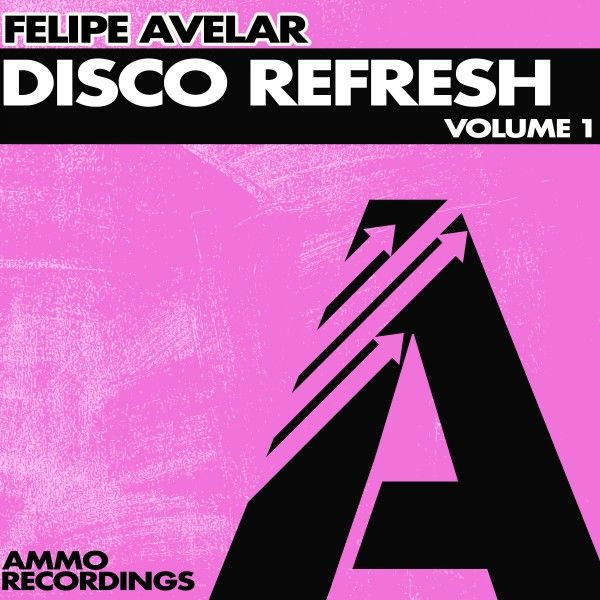
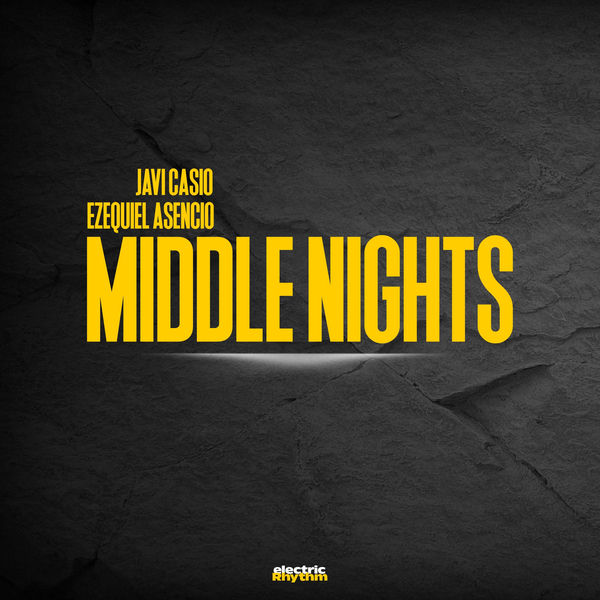
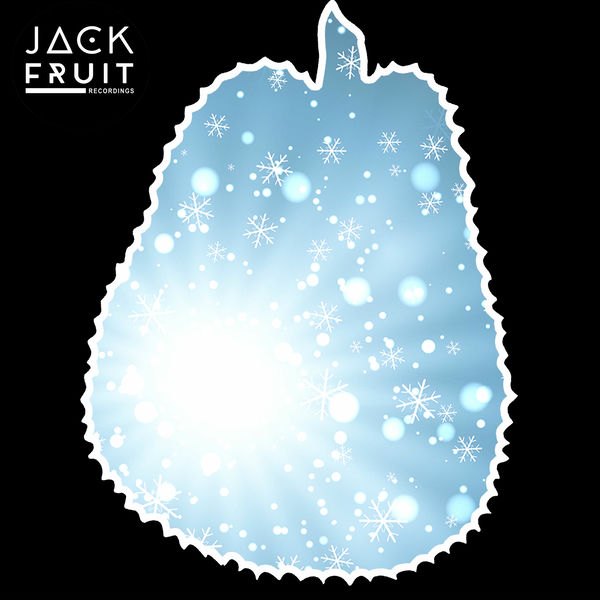
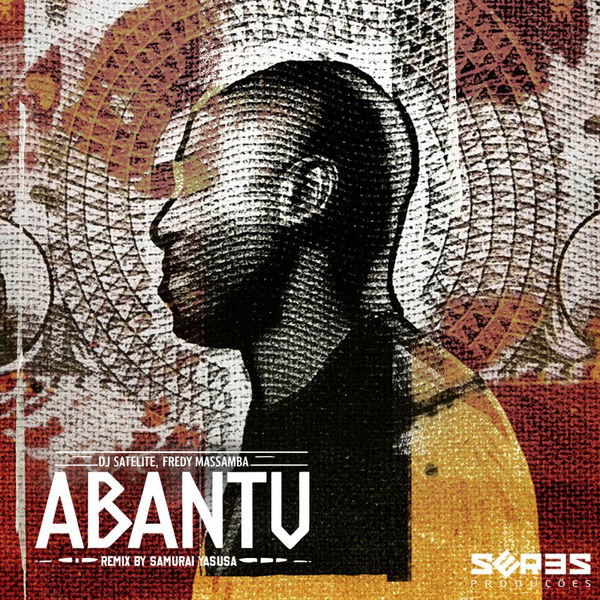
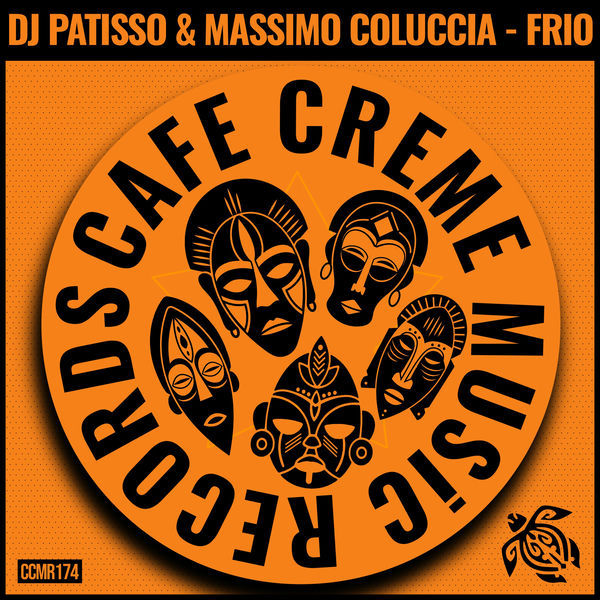

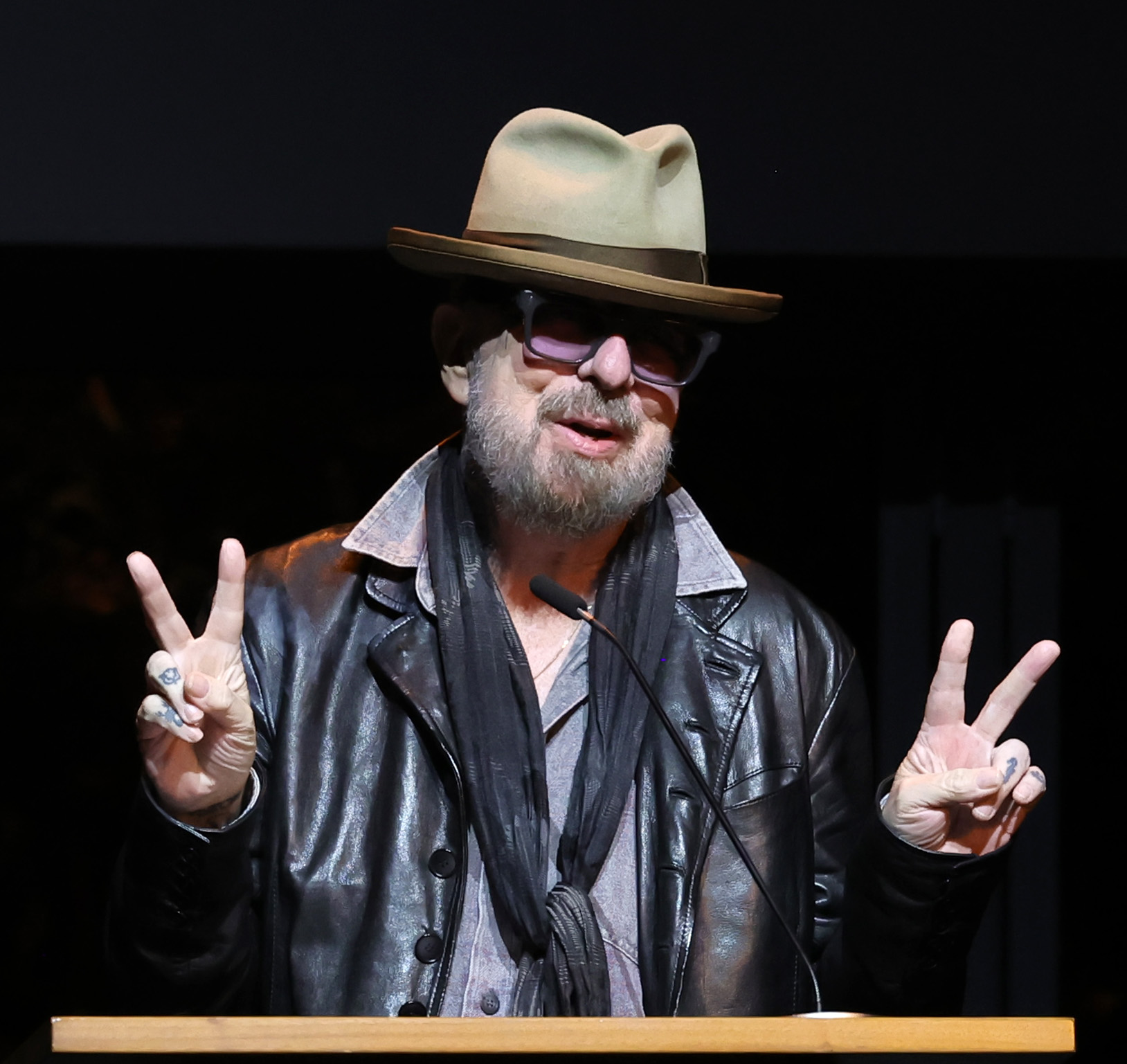






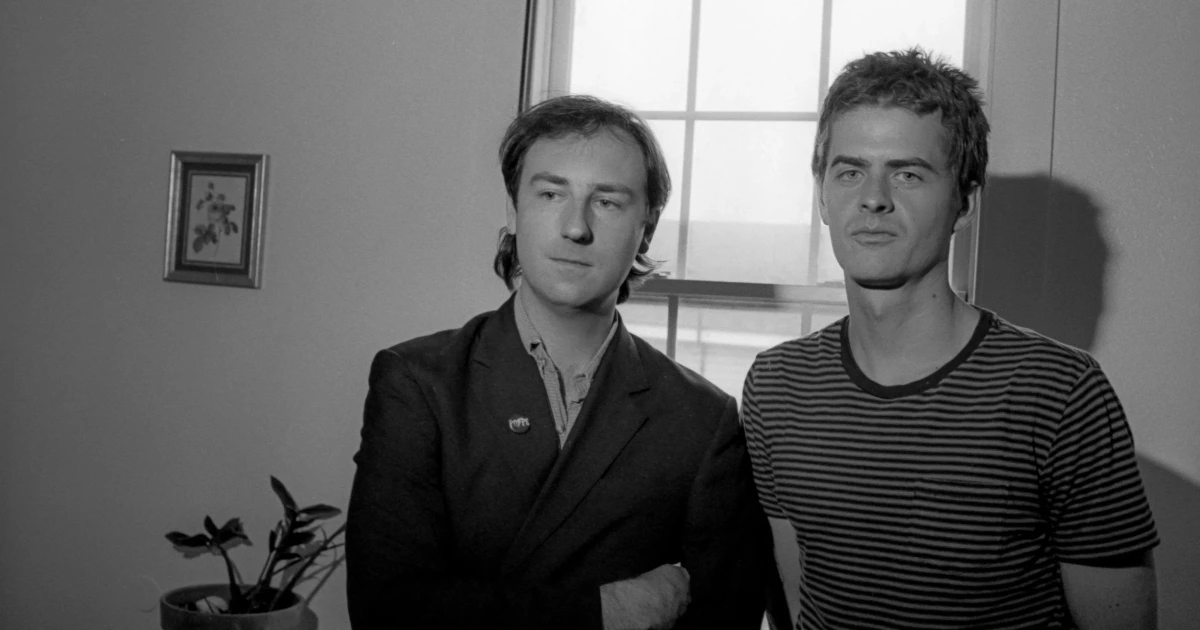



 English (US) ·
English (US) ·